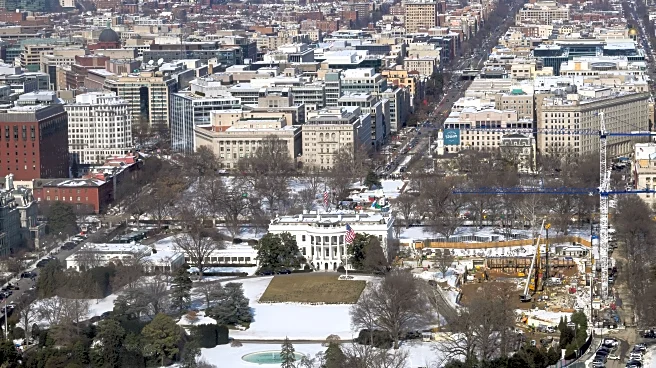What's Happening?
The U.S. dollar has reached its strongest levels in six weeks during early Asian trading, driven by escalating concerns over the ongoing U.S. government shutdown. This situation has heightened investor anxiety, leading to increased demand for safe haven assets like the dollar. The Japanese yen has weakened to its lowest point since mid-February against the dollar, influenced by expectations of increased fiscal spending in Japan following the election of Sanae Takaichi to the ruling Liberal Democratic Party. The euro has also declined due to political uncertainty in France. The absence of U.S. economic data, a result of the government shutdown, has further supported the dollar's rise.
Why It's Important?
The strengthening of the U.S. dollar amid the government shutdown highlights the currency's role as a global safe haven during times of uncertainty. This development could have significant implications for international trade and investment, as a stronger dollar makes U.S. exports more expensive and could impact the profitability of American companies operating abroad. Additionally, the Federal Reserve's anticipated interest rate cuts could further influence currency markets and economic conditions. The situation in Japan and France adds layers of complexity to the global economic landscape, potentially affecting international relations and economic policies.
What's Next?
The Federal Reserve is expected to cut interest rates by 25 basis points at its upcoming meeting on October 28-29, with a high probability of an additional cut in December. The release of the Fed's September meeting minutes may provide further insights into future monetary policy directions. Meanwhile, political developments in Japan and France will be closely monitored, as they could influence fiscal and economic strategies in those countries. The ongoing U.S. government shutdown remains a critical factor, with potential impacts on economic data releases and investor confidence.










